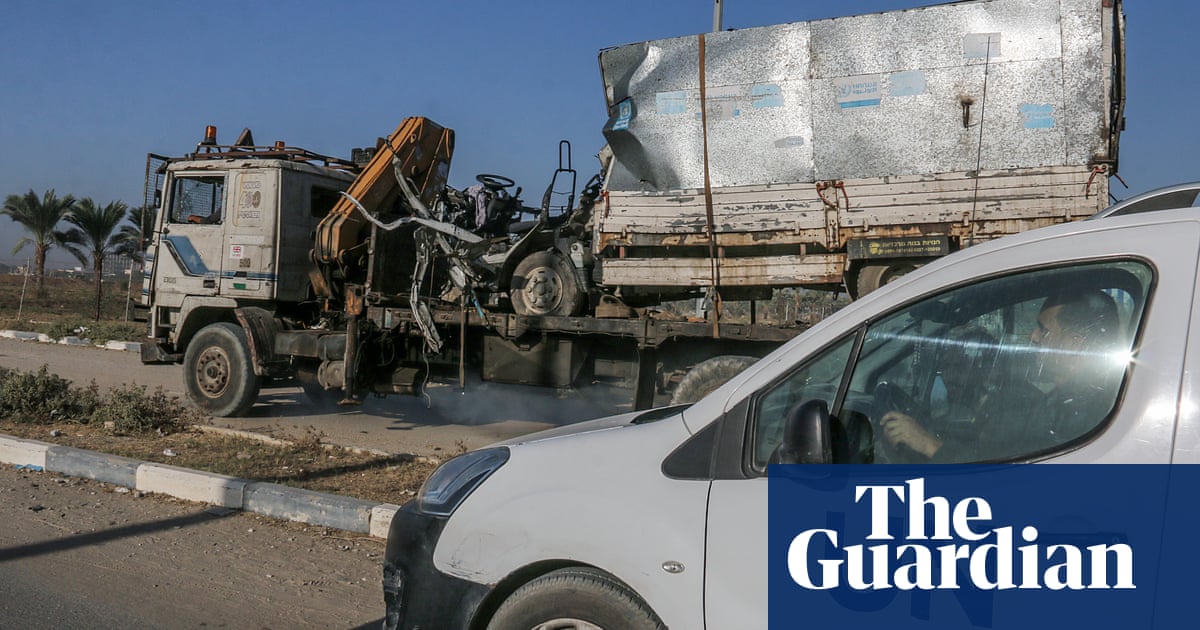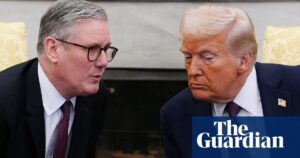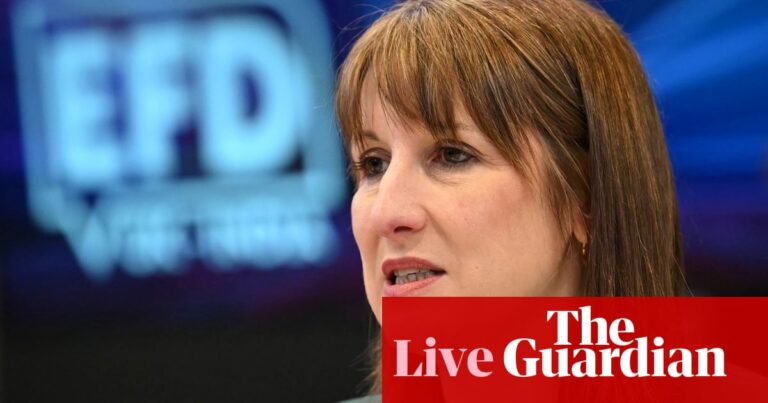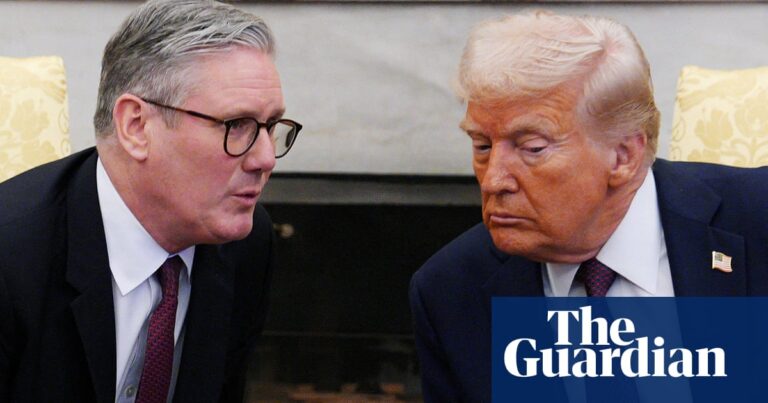
Israel’s reputation as a democracy would be “deeply harmed” if the Knesset pressed ahead with bills this week that would end all Israeli government cooperation with the Palestinian relief agency Unrwa, the UK’s Middle East minister has said.
Hamish Falconer said such a move at a time when the humanitarian crisis in Gaza was catastrophic and worsening would “neither be in Israel’s interest or realistic”.
His remarks are the strongest criticism yet by a western government minister of the legislation, which could be voted on as early as this week unless the Israeli prime minister, Benjamin Netanyahu, intervenes.
He was speaking as a joint statement was released from seven European foreign ministries, including the UK’s, urging Israel to drop the proposed bill, saying: “It is crucial that Unrwa and other UN organisations be fully able to deliver humanitarian aid and their assistance to those who need it most, fulfilling their mandates effectively.”
Falconer demanded that more aid be allowed to enter Gaza and said too many civilians were being killed in Israeli attacks on Hamas in Gaza. He was speaking at a conference in London convened by the Israeli newspaper Haaretz.
Falconer said the measures taken by the Labour government so far did not indicate any decline in Labour support for the state of Israel, but his remarks were as sharp as any delivered by a Labour minister.
He said: “We are deeply concerned by legislation currently under consideration by the Israeli Knesset which would critically undermine Unrwa. It is neither in Israel’s interest nor realistic.
“Given the agency’s vital role in delivering aid and essential services at a time when more aid should be getting into Gaza, it is deeply harmful to Israel’s international reputation as a democratic country that its lawmakers are taking steps that would make the delivering of food, water, medicines and healthcare more difficult.”
He added: “The international community are clear that Unrwa and other humanitarian organisations must be fully able to deliver aid.”
Many Israelis regard Unrwa as too closely linked with Hamas and also committed to the Palestinian refugees’ right of return.
Falconer, who has recently been to the Egypt-Gaza border, said humanitarian access to Gaza remained wholly inadequate. “I saw for myself thousands of trucks waiting to cross the border,” he said. “Some had been there for months. There were warehouses full of life-saving items – medical equipment, sleeping bags and tarpaulin for the winter. There have been repeated attacks on humanitarian convoys and the level of aid getting in is far too low.”
He challenged Israel’s military tactics inside Gaza, saying: “Hamas is a brutal terrorist organisation, it hides behind Gazan civilians, but all parties must do everything possible to protect civilians and fully respect international humanitarian law.”
He said Israel “must protect civilians even if it means making difficult choices. All too often in the pursuit of Hamas we have seen civilians pay the price. The Israeli government must take all necessary precautions to avoid civilian casualties, to ensure aid can flow into Gaza and freely through all humanitarian land routes.”
Falconer also said: “As long as there is little accountability for settler violence, the government will consider further actions.”
Warning that the risk of further escalation could not be exaggerated, he called for calmer heads to prevail and urged Iran not to retaliate for Saturday’s Israeli attack. The death of the Hamas leader Yahya Sinwar presented an opportunity for a new chapter, he said, and no military solution existed to the crisis.
Speaking at the same event via video link, the former UK prime minister Tony Blair said: “Hamas cannot be allowed to continue to govern Gaza, and Israel will need to pull back to allow the development of a different governance structure for Gaza that would then enable reconstruction to take place.”
Blair said he knew that many in Israel doubted Gaza could ever be run differently, and many assumed a “higher level of support for Hamas than exists in reality”.
He said polls commissioned in August by the Tony Blair Institute showed that the most popular choice was an administration of Gaza representatives with international oversight and linked to the Palestinian Authority. He said the poll showed that in the West Bank there was strong agreement behind moderate to deep reform of the Palestinian Authority.
The former Israeli prime minister Ehud Olmert told the conference that Israeli opposition parties needed to show courage by speaking out in favour of a two-state solution as they knew it was the only alternative to more blood and killings.
He was speaking alongside Nasser al-Kidwa, a former Palestinian foreign minister and nephew of Yasser Arafat. The two men have published a peace plan for the Palestinian conflict and it was the first time Kidwa had spoken at an Israeli-organised event.
Olmert, who dodged questions about whether he was returning to frontline politics, said of the two-state solution: “No one is prepared to say this publicly, openly, because they do not have the guts to speak out. They know there is no other solution. Presently they are afraid to spell it out when soldiers are being killed on a daily basis.”
He said his job was “to say not what was popular, but what was true”.
Their joint proposal calls for an immediate ceasefire in Gaza, a full withdrawal of troops from the territory, a release of all hostages held by Hamas, and Palestinian elections within 36 months.
Source: theguardian.com
















